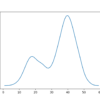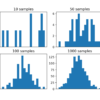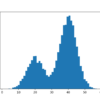Computational learning theory, or statistical learning theory, refers to mathematical frameworks for quantifying learning tasks and algorithms. These are sub-fields of machine learning that a machine learning practitioner does not need to know in great depth in order to achieve good results on a wide range of problems. Nevertheless, it is a sub-field where having […]










